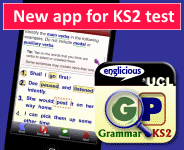Explanation
Complement is often used as a general functional label for any constituent whose presence is required by a verb, noun, adjective or preposition.
A verb's Subject Complement adds more information about its Subject, and its Object Complement does the same for its Object.
Unlike the verb's object, its complement may be an adjective. The verb be normally has a Subject Complement.
- She is our teacher. [adds more information about the subject, she]
- They seem very competent. [adds more information about the subject, they]
- Learning makes me happy. [adds more information about the object, me]
Thus many grammars use the notion Complement in a wider sense as a cover term to denote Direct Objects, Indirect Objects and any other unit that a particular verb (or other element) selects. Under this wider definition, all of the highlighted portions in the sentences below are Complements.
- Luke crashed his bike in the playground. [noun phrase acting as Direct Object]
- My company sent me a new smartphone. [pronominal noun phrase acting as Indirect Object and noun phrase acting as Direct Object]
- They suggested that I should upgrade. [clause acting as Direct Object]
- We relied on his knowledge of the area. [prepositional phrase acting as Complement of the verb]
On the Englicious site we use Subject Complement and Object Complement as terms for specific functions within the clause.
Englicious contains many resources for English language in schools, but the vast majority of them require you to register and log in first. For more information, see What is Englicious?

